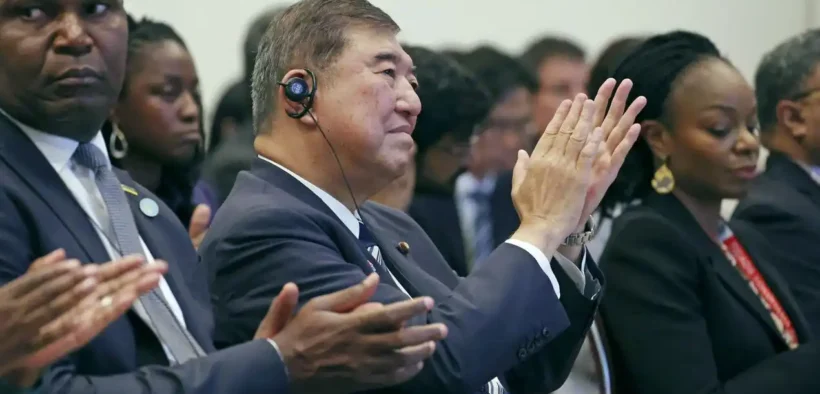Japan Plans $1.5 Billion Investment in Africa to Promote Sustainability
Share

Japan is stepping up its efforts to become more involved in Africa’s development, with a new plan to invest $1.5 billion over the next three years. The focus of this investment is on reducing greenhouse gas emissions and supporting sustainable growth across the continent.
The funds will be raised by the Japan International Cooperation Agency (JICA) in collaboration with private investors, as well as Japan’s $1.7 trillion Government Pension Investment Fund, which is also set to support the initiative, according to Bloomberg.
Takehiko Matsuo, Vice Minister for International Affairs at Japan’s Ministry of Economy, Trade, and Industry, explained that Japan’s recent economic recovery has shifted the mindset of Japanese businesses, making them more eager to invest in Africa.
“Now the mindset of Japanese business leaders has changed dramatically, and they are now much more proactive about expanding their business globally,” Matsuo told Bloomberg. This shift is particularly focused on fostering global sustainability.
Japan’s investment will prioritize key areas like critical minerals and base metals, which are essential for clean energy and industrial growth.
The aim is to reduce Japan’s reliance on China, currently Africa’s largest trading partner. Former Japanese Prime Minister Fumio Kishida echoed this call for action, urging private companies to play a bigger role in Africa’s sustainable development during the Tokyo International Conference on African Development.
“It’s more important than ever to leverage the energy of the private sector for the sustainable development of Africa, amid growing demand for funding to address social and economic challenges,” Kishida said, as reported by Nippon.
Japanese companies are already making strides in Africa. Isuzu Motors South Africa, for instance, is in discussions with Japanese stakeholders to expand their manufacturing capacity on the continent.
Billy Tom, the president and CEO of Isuzu Motors South Africa, shared that the company is exploring the possibility of building more production facilities in Africa. “We’re saying to them, instead of producing vehicles in Japan, you’ve got a facility in Africa.
We can produce the vehicles here,” Tom explained in an interview with Reuters. The company hopes to increase its share of African manufacturing to 45%, up from 30% six years ago, signaling Japan’s long-term commitment to economic development in Africa.


















